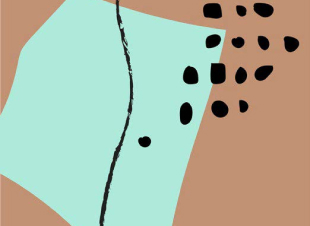This is the holy grail of happiness…seriously

Happiness. We’re all seeking it and as a society we talk about it a lot. But what does it really mean? And can you ever really attain it?
One definition of happiness is… “a mental or emotional state of well-being which can be defined by, among others, positive or pleasant emotions ranging from contentment to intense joy.”
But there’s a lot more to happiness than feeling happy. It is more nuanced than that. It has to be, otherwise why do we do things that challenge us?
Eckhart Tolle says, “you don’t transform in your comfort zone”. When you strive to achieve your goals the process can be uncomfortable but we can still feel pleasure as a consequence of our actions.
For example, stretching and bending in a yoga class when we’re not very flexible isn’t something that brings us comfort but still we reap the benefits of the practice and often leave the class feeling stronger, happier, grounded and more focused.
In this example, we feel short term discomfort for the possibility of longer term joy or contentment. Yoga obviously is just one example… you can also think about it in the context of parenting or starting a new business. Not every moment is fun filled but the journey somehow seems worth it.
While we all love the chemical changes that happen in the brain and body to create that fleeting feeling of happiness, it is the enduring sense of happiness or contentment over time, that is the holy grail of happiness. But it is important to accept that enduring happiness will be pockmarked by moments of stress, discomfort, challenges and set-backs, all of which make its presence sweeter.
While happiness is hard to define – most of us are aware of what it means to be UN-happy. In our work at The Mind Room we see a growing number of people suffering anxiety, depression and burn-out. In an era of relative wealth in our community this seems like a paradox.
As a society, we’re buying into busy-ness in a BIG way. And with a finite amount of time and energy available to each of us, technology has tipped the balance proposition on its head. We’re less connected to ourselves (and others) and more connected to our devices than ever before. Technology holds the promise of greater efficiency and productivity, when used wisely, but a lot of us seem to have fallen into a toxic relationship that we don’t know how to quit. The net result is less time being present, less time to really know our minds, and less time to connect with others.
Social media in particular seems to amplify the human propensity to compare ourselves to each other and see how well we measure up, or not. Usually leaving us feeling pretty ordinary. It is easy to find yourself in a constant state of comparison, always thinking that you are not quite good enough, not achieving all you should be, put simply – not enough.
Learning how to let go of the cult of busy-ness and social comparison is key to health and happiness. Recognising that you have a finite amount of time and energy, so try focusing it on the things that matter. At The Mind Room we are pretty keen to show people how to be more mindful, through meditation and daily activities, and to reflect on what matters most in their life. We help them let go of unhelpful habits of mind, like social comparison or self-criticism.
We do a lot of work around values – helping clients to understand what it is that drives them so that they might carve out a life more aligned with their authentic self. As Mahatma Gandhi said, “Happiness is when what you think, what you say, and what you do are in harmony.”
This life is all about understanding what happiness actually means to you. How can you be happy, if you don’t know what it is?
The scientific understanding of “happiness” is still very young, with only two decades of consistent science and research to support our knowledge. One scientific review from the New Economics Foundation in the UK has helped to consolidate the research to date and identify five simple everyday actions that contribute to the holy grail of happiness. But be warned it sounds so simple, so unadorned, that it is easy to dismiss. Unfortunately that is what many of us do, especially when we are busy, tired or stressed.
This simple recipe will get you well on your way to living a happier and more joyous life:
- Get moving: Find ways to build more movement into your life. The brain thrives on movement and will even reward you with some feel good endorphins for your efforts.
- Be mindful: Tune in to what’s happening here and now. Be curious about what you can touch, taste, hear, see and smell. You can try meditation or be practical and bring mindful attention to daily activities like brushing your teeth, eating or drinking mindfully.
- Keep learning: Keep your brain active. And I don’t just mean academic learning…try something you’ve never done before. Think burlesque, crafternoon, Laughter Yoga Club, flower arranging, kombucha making. Get out of that comfort zone!
- Connect socially: Surround yourself with lovely and interesting people that challenge your way of thinking. Have spirited conversations and know that those nights that you don’t feel like going out are probably the nights when you should. Talk to the person that makes your coffee or fixes your shoes. Community building is key and we are craving it more and more!
- Give back: It doesn’t have to be a grand gesture… it could be as small as a smile or hello when you pass a person in the street. Look at opportunities to support those less fortunate than you and maybe volunteer your time once a month. There’s no better way to boost your own mood than by doing something for others.
Remember, happiness isn’t just an emotion. Happiness is a way of life. It’s a way of being that constantly needs to be nurtured, like a small child that needs ongoing attention and affection to really thrive.
I’ve seen first-hand that living the five keys to happiness listed above can help to build a solid foundation for a more satisfying life. How many of these five happiness actions do you cultivate in your own life? The holy grail is within your grasp.





